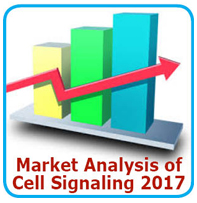Sarah J Freemantle
University of Illinois at Urbana-Champaign, USA
Title: G0S2 represses PI3K/AKT/mTOR signaling and increases sensitivity to PI3K/mTOR pathway inhibitors in estrogen receptor-positive breast cancer cells
Biography
Biography: Sarah J Freemantle
Abstract
G0/G1 switch gene 2 (G0S2) is a direct retinoic acid target gene widely expressed in many cell types and implicated in cancer based on frequent methylation-mediated silencing in diverse solid tumors. We recently reported high levels of G0S2 expression in breast cancer, particularly estrogen receptor-positive (ER+) breast cancer that strongly correlates with survival, suggesting that G0S2 plays a role in breast cancer progression. However, the function(s) and mechanism(s) of G0S2 tumor suppression remain unclear. We hypothesize that G0S2 represses proliferation and oncogenic signaling in ER+ breast cancer cells and promotes more effective responses to existing therapies targeting ER+ breast cancer, leading to inhibition of recurrence. In order to determine potential mechanisms of G0S2 anti-oncogenic activity, we performed genome-wide expression analysis that revealed an enrichment of gene signatures related to PI3K/mTOR pathway activation in G0S2-null MEFs. G0S2-null MEFs also exhibited decreased sensitivity to PI3K/mTOR pathway inhibitors. Overexpression of G0S2 in human ER+ breast cancer cells decreased basal mTOR signaling and sensitized the cells to pharmacologic mTOR pathway inhibitors. These findings indicate that G0S2 functions as a tumor suppressor in part by repressing PI3K/mTOR activity and may enhance therapeutic response to PI3K/mTOR inhibitors. Recent studies have suggested that hyper activation of PI3K/mTOR signaling promotes escape from hormone dependence in ER+ breast cancer. Our data implicates G0S2 in opposing this form of antiestrogen resistance, prompting further investigation of the potential role of G0S2 as an antineoplastic breast cancer target and biomarker for recurrence and therapy response.

